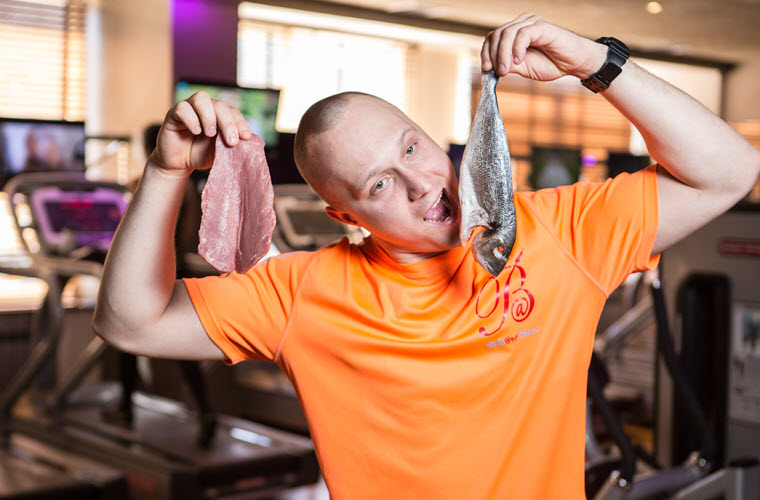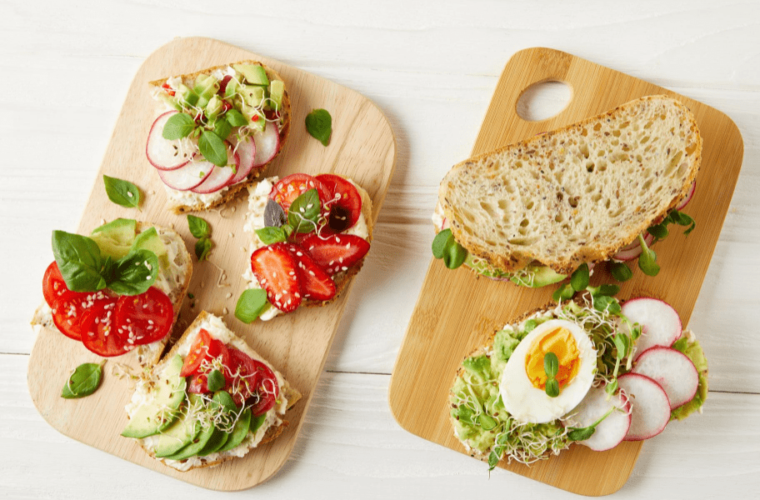A senior instructor at BodyArt fitness Sergey Bilenko told Obozrevatel the most common mistakes people make when trying to shred off those extra pounds by cutting down on food and why this may cause irreversible damage to their health.
Many people talk about mono food days when they are eating only cultured yoghurt, oatmeal, apples and other product all day long. And more often, about eating nothing but a piece of cake or some ‘light dessert’. Then, the same scenario happens: I ate almost nothing and I don’t lose weight. I fail every time! Should I just drink water?!
Well, being in the diet industry for many years, I can say only one thing: nothing happens quickly and easily. Doing “some” exercising and following poorly designed dieting plan cannot bring good result in one month. And in order to remove all your energy reserves (fatty deposits) from under the skin you need to work hard and eat healthy day after day!
Let’s start with saying that our body is made up of the bones, muscles, skin and fat, as well as bodily fluids (blood, lymph and digestive juices), and it is in great need of “building material” to “repair”, renew and grow all organs and tissues.
The basic building material of our body cells is protein.
Muscles, internal organs, circulatory and immune systems, skin, hair, nails are made up from protein.
The transport function of protein is to bind and move important substances to cells.
Protein also has the protective function – protein molecules are actively involved in immune system functioning.
Protein metabolism consists of the following: proteins from food (meat, fish, peas, nuts) are broken down in the digestive tract to release amino acids (components that make up a complex protein molecule). Our body can produce only half of all amino acids required to make proteins. Only half of them! The remaining amino acids are called essential amino acids and they must come from food. And from nowhere else.
There are certain foods that contain all the essential amino acids (meat, eggs, fish, cottage cheese). Plant-based protein foods (peas, beans, nuts) contain an incomplete set of amino acids. Therefore, the body will function in a self-disservice way, since it needs to survive somehow. Abstaining from protein foods is especially dangerous for people with obesity. If a person with well-developed muscles experiences protein starvation, the body takes the necessary amino acids from muscle tissue. With little muscle tissue and a lot of fat, body starts destroying internal organs to get amino acids if protein intake is inadequate. So, imagine what happens to your body if you eat only oatmeal or salads all week long.
Protein is also a major component of enzymes that regulate metabolism, the one that overweight people try to normalize using various diets with restricted protein intake. But the nature cannot be fooled, and such diets ‘damage’ metabolism rather than normalize it.
Daily requirement for different types of protein is 1-1.5 g per 1 kg of body weight (for athletes 2-3 g per 1 kg of body weight ). For example, you weight 70 kg and you don’t do sports, you need 80-100 g of protein per day. A sample meal plan for such person would be 250 grams of cottage cheese (45 g of protein) + 200 g of fish (40 g of protein) + 3 eggs (15 g of protein). Daily protein requirement for a person with the same body weight but who workouts 4-6 days a week on a regular basis would be 140-180 g per day. A sample meal plan may be 500 g of meat (100 g of protein) + 250 g of cottage cheese (45 g of protein) + 200 g of fish (40 g of protein). And always remember eating your ‘slow’ carbs (cereals, whole-grains), they mustn’t be cut down! But you can adjust their intake depending on your goals.
Also, sports supplements are also worth attention. If you lack sufficient protein, you can add protein shakes and amino acids to your diet. They are quickly absorbed by the body and bring immense benefits to your post-workout starving muscles. You can also have a protein shake when lacking time for proper meals, since it is highly undesirable to skip meals when training.
Remember, you can achieve success only if you focus on your diet. Your died must have well-balanced amount of proteins, carbs, fats, vitamins and minerals.
Therefore, do the rethinking of what you eat, analyse and adjust your diet. And remember, we are what we eat!
Source: Obozrevatel









